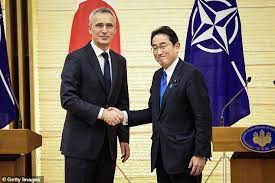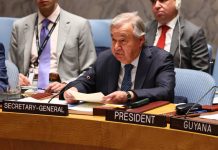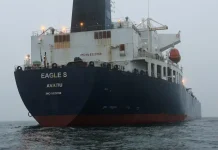China’s growing assertiveness and collaboration with Russia poses a threat not only to Asia but also to Europe, NATO Secretary-General Jens Stoltenberg said Wednesday as he sought stronger cooperation and more “friends” for NATO in the Indo-Pacific region.
Stoltenberg said China is increasingly investing in nuclear weapons and long-range missiles without providing transparency or engaging in meaningful dialogue on arms control for atomic weapons while escalating coercion of its neighbors and threats against Taiwan, the self-ruled island it claims as its own territory.
“The fact that Russia and China are coming closer and the significant investments by China and new advanced military capabilities just underlines that China poses a threat, poses a challenge also to NATO allies,” Stoltenberg told an audience at Keio University in Tokyo. “Security is not regional but global.”
“NATO needs to make sure we have friends,” he said. “It is important to work more closely with our partners in the Indo-Pacific.”
Calling it a “critical moment for NATO and Japan,” Stoltenberg said China and Russia were “leading an authoritarian pushback against international rules-based order.”
“China is watching closely and learning lessons that may influence its future decisions,” Stoltenberg said at a joint news conference with Japanese Prime Minister Fumio Kishida.
“China is substantially building up its military forces including nuclear weapons, bullying its neighbors and threatening Taiwan, trying to control critical infrastructure and spreading misinformation about NATO and the war in Ukraine,” Stoltenberg said. “China is not our adversary, but we must understand the scale of the challenge and work together to address it.”
He said the alliance would continue to engage China in areas of common interest, such as climate change.













